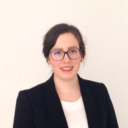Last week, I was fortunate to participate to the 2019 ERNOP Conference. Entitled ‘Philanthropy in the spotlight’, the event set out to explore the achievements, impacts and limitations of present-day philanthropy and its future developments. As I read through the diverse program and tried (with difficulty) to narrow down the few parallel sessions I would be able to attend among the vast selection of topics presented, I remember thinking that I was in for an exciting experience. I could not have been more right.
It started on Wednesday with a pre-conference on cross-border philanthropy. Already the tone and ambience of the three days to come were set: panellists and spectators gathered that day had travelled from Europe and abroad with the intent to study, debate and bring philanthropy across borders.
As I listened to the exchanges on European regulatory measures, taxation and emerging risks and opportunities for transnational giving, I was impressed by the energy, enthusiasm and commitment of the academics and practitioners working together to protect and grow the European philanthropic space. Dr. Oonagh Breen, Professor of Law at UCD Sutherland School of Law, presented a compelling case of how legal and fiscal measures, as well as soft law mechanisms might be used to facilitate tax-efficient cross-border giving in Europe. Philanthropy, Hannah Surmatz from the European Foundation Centre reminded us, needs the right environment to address current and new societal challenges. Climate change, poverty, malnutrition do not stop at borders, neither should philanthropic giving.
Later on, as the panellists and moderators involved in the sessions gathered around a dinner table, other topics of discussion emerged, tying the pre-conference to the main ERNOP event smoothly: exit strategy, donor accountability, transparency and the overall donor-beneficiary relationship. ‘How do we give?’, ‘Why do we give?’, ‘How can donors work best with the organizations their support?’. These are some of the questions that would be highlighted in the two days to come.
On Thursday, keynote speaker Prof. Dr. Rob Reich of Stanford University called on the assembly gathered to re-imagine a healthier relationship between grant-making organizations and their grantees. To bridge the divide created by the language of effectiveness, concepts of ‘right of failure’, ‘risk-taking’, and ‘experimental approach’ were emphasized. Power, Pr. Reich declared, must be put back into the hands of beneficiaries. These reflections were echoed during the presentation given by Lynda Mansson, Director General of the sunset foundation MAVA. The key to building deeper collaborative relationships with beneficiaries is to listen to the needs and experience of those working on the front line. To ‘give right’, grant-makers should bring the organizations they support to the table as key partners and valorise the knowledge acquired on the ground.
Knowledge sharing was most certainly at the heart of the ERNOP conference and pre-conference, thus providing an open space for dialogue. As academics presented their latest research, session participants eagerly took part in the follow-up discussions. Fellow researchers questioned, challenged and suggested further lines of study and limitations to beware of. Practitioners gave feedbacks and shared their experience working in the field. In between sessions, conversation abounded between participants. PhD candidates preparing their thesis on venture philanthropy in Australia encountered experienced academics presenting their research on the impact of religion on volunteering and giving, whilst Family Office advisors and Grants managers exchanged with scholars on the practical approaches to apply academic work in their relationships with beneficiaries and donors. For three days, bridges across areas of research, cultures, countries, modes and levels of engagement with the philanthropic sector were crossed.
As a young enthusiastic professional taking her first steps in sector, the 2019 ERNOP Conference brought me much: fascinating discussions, new personal and professional connections, and an expanded curiosity. As the three days of event came to a close, I was more than ever committed to participating in this dynamic community of academics and practitioners working together to overcome boundaries limiting philanthropy.
Anne-Laure Paquot is Network Manager at Transnational Giving Europe in Brussels.
The European Research Network On Philanthropy is an association of more than 250 academics aiming to advance philanthropy research in Europe. Learn more by visiting the website http://www.ernop.eu and sign up to the quarterly newsletter.






Comments (0)